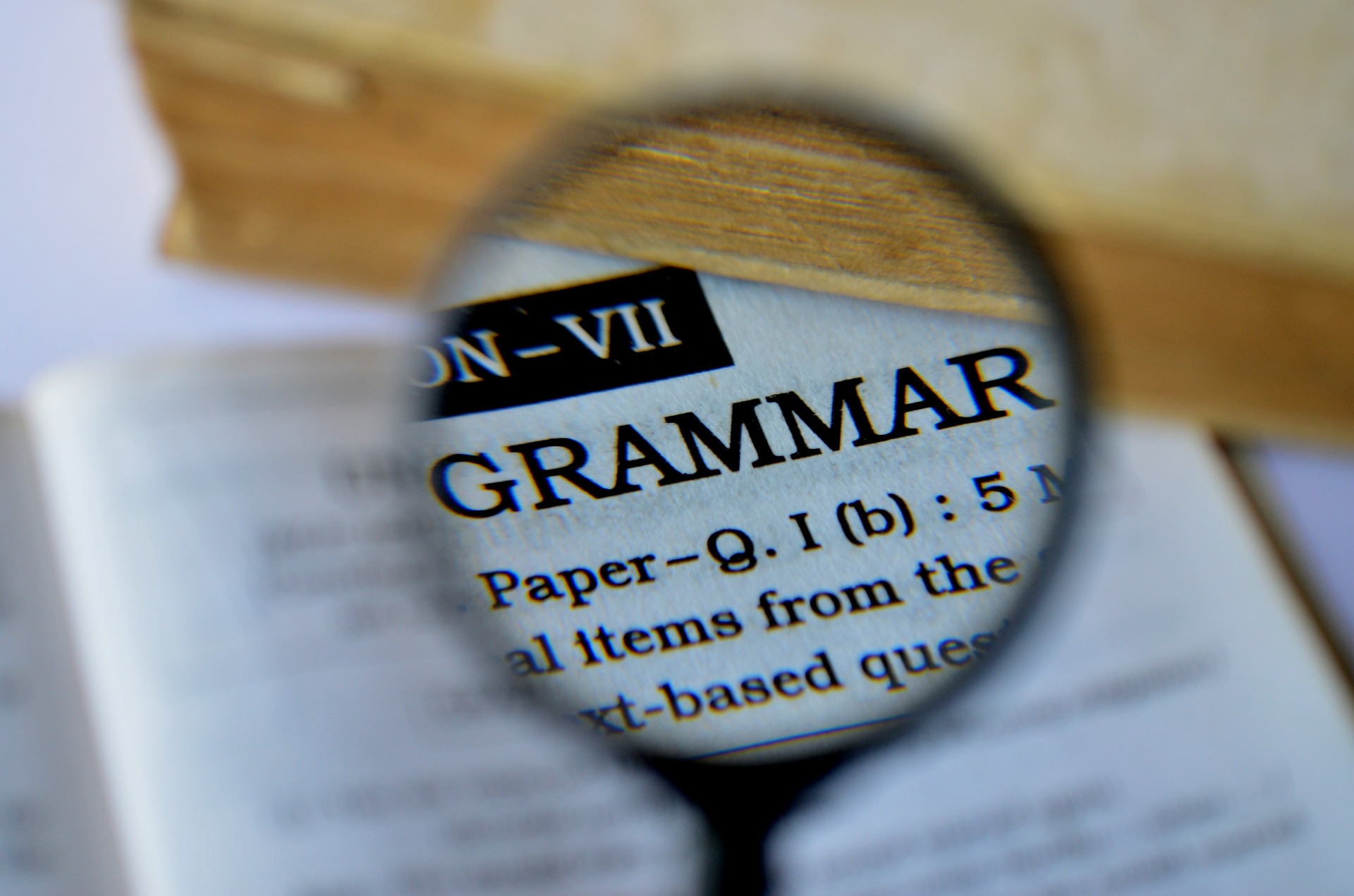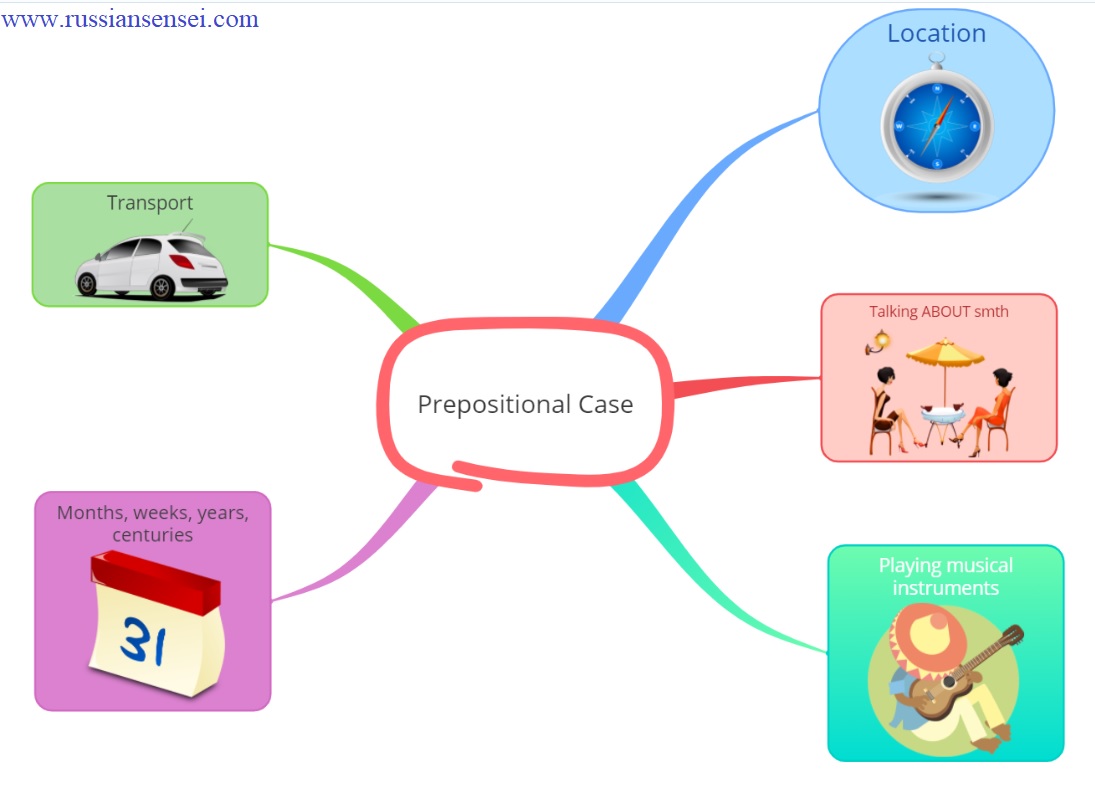
The Russian Genitive Case (Кого? Чего?)
The genitive case is used in a variety of situations in Russian. That’s why it has so many endings😊 In this article we’ll talk about when exactly we use this case.
- Possessor
a) The answer for the questions Чей? Чья? Чьё? Чьи?). In English this translates as “ ‘s” after a noun.
Чей это паспорт? – Это паспорт студента
Whose passport is it? – It’s the student’s passport
b) The genitive case is used to say the expression “I have” in Russian.
У меня есть книга. – I have a book.
У Марии есть машина. – Maria has a car.
The preposition У is used to show that something is very close, next to us, so our ancestors believed that if something belongs to us it must be somewhere nearby, very close to its owner otherwise it will be stolen😊 That’s why we use this construction to express the possession. The thing/person we possess is the subject of a sentence so is used in the Nominative case.
I have … – У меня есть… We have – У нас есть…
You have – У тебя есть… You have – У вас есть …
He has – У него есть …
She has – У неё есть … They have – У них есть …
It has – У него есть …
- Absence of something or somebody
У Анны нет книги. – Anna doesn’t have a book.
- Measure and quantity
a) 2,3,4 + genitive singular
Моей сестре 22 года.
b) 5+ take genitive plural.
Моей тёте 55 лет.
!!! 11, 12, 13, 14 take genitive plural
Моему брату 12 лет.
4. After quantifiers
Сколько – how much/how many
Несколько – several
Много – a lot
Мало– few, little
Достаточно – enough, etc
К сожалению, я не смогу тебе помочь, завтра у меня будет мало времени. – Unfortunately, I won’t be able to help you, I’ll have little time tomorrow (I’ll be busy tomorrow).
5. Containers
Стакан сока – a glass of juice
Пачка соли – a packet of salt
6. After certain prepositions (с, у, от, до, из, без, для, вокруг, около, возле, кроме)
С – from, since (about time)
С понедельника по пятницу – from Monday till Friday
У – next to, at, for possession
У Виктора есть компьютер. – Viktor has a computer.
Давай встретимся у станции метро. – Let’s meet at the metro station.
От – from
До – till, to
От Москвы до Петербурга 705 км.
Работу нужно закончить до пятницы. – The work must be finished by Friday.
Из – from
Моя тётя завтра приезжает из Москвы. – My aunt will come from Moscow tomorrow.
Без – without
Я всегда пью кофе без сахара. – I always drink coffee without sugar.
Для – for
Я купил подарок для своей подруги. – I bought a present for my girlfriend.
Вокруг – around
Вокруг света за 80 дней. – Around the world in 80 days.
Около – about, next to
Давай встретимся около моего дома. – Let’s meet near my house.
Возле – next to
Мой офис находится возле озера. – My office is next to the lake.
Кроме – apart from
На вечеринке были все сотрудники, кроме Александра. – All the staff were at the party except Alexander.
7. Dates. Time
Какого числа? / Когда? – двадцать пятого сентября
Когда твой день рождения? – Двадцать первого июля.
Во сколько? / Когда?
Во сколько начнётся футбол? – В половине первого.
8. Comparison
Москва больше Санкт-Петербурга. – Moscow is bigger than St. Petersburg.
9. After certain verbs:
Боя̀ться/побоя̀ться – to be afraid
Ждать/подожда̀ть – to wait
Просѝть/попросѝть – to ask for
Иска̀ть/поиска̀ть – to seek, to look for
Жела̀ть/пожела̀ть – to wish
Хотѐть/захотеть – to want
Трѐбовать/потрѐбовать – to demand
Ожида̀ть – to expect
Дети часто боятся темноты. – Kids are often afraid of darkness.
!!! If you’re talking about something concrete and specific, then we use the Accusative case after желать, искать, хотеть, требовать, просить, ждать, and ожидать.
Я жду свой автобус уже 15 минут. – I’ve been waiting for a bus for 15 minutes.
Do the following exercises to check yourself.
More information about the Prepositional case.






[…] information on the Russian cases: Genitive and […]